 Flora "Fola" Dodge La Follette
Flora "Fola" Dodge La Follette
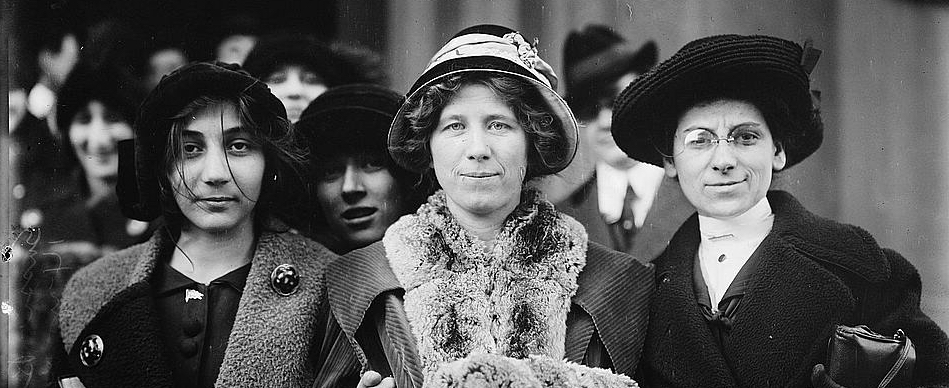
Above: Fola La Follette (center) with Unidentified striker (left) and social reformer and missionary, Rose Livingston (right) during a 1913 garment strike in New York City.
Fola La Follette - Women's suffrage and labor activist, actress and author; born Flora Dodge La Follette on September 10, 1882 in Madison, Wisconsin.
She was the first child of lawyer and women's suffrage leader Belle Case La Follette and progressive politician Robert La Follette.
Her early education was at Wisconsin Academy in Madison. She went on to graduate from the University of Wisconsin.
After graduating, La Follette acted on the stage for ten years, marrying playwright George Middleton in 1911 while retaining her maiden name. She appeared on Broadway in
such plays as Leo Ditrichstein's Bluffs (1908), Percy MacKaye's The Scarecrow (1911) and the Broadway production of her husband's Tradition.
La Follette wrote for periodicals in the cause of women's suffrage and was active in helping her mother in the suffrage cause from an early age.
But it was in the merger of La Follette's women's suffrage and acting careers where she made her greatest impact. She performed numerous times in
the one-woman play How the Vote was Won, starting in 1910, and, in 1912, she appeared in Vaudeville to give a well-received suffragist speech.
In 1913, La Follette played a role in gaining her father's promise to intercede in the United States Senate on behalf of striking workers in the garment
industry in New York City. She spent time as a strike picket and used the prominence of her voice as a member of an influential family and as a well-known
actress to denounce the arrests and treatment of striking workers.
It was a significant time in both the labor movement and women's movement. The public's attention was caught by the concept of women picketing for their rights,
and La Follette and other activists showed their support. In addition to picketing, La Follette gave a speech to the workers, went to court to testify on behalf
of arrested workers and raised the issue of police brutality. Together with other society and college women, La Follette was part of what was referred to in this
and other strikes as the "mink brigade" — women whose dress and social status would give police pause in arresting them.
Together with other actors, La Follette helped found the actors' union Actors' Equity.
From 1926 to 1930, La Follette taught at City and Country School in New York City, New York
La Follette served as a contributing editor to the family's eponymous The Progressive magazine (still being published in Madison, Wisconsin) and contributed to other periodicals.
At the time of her death in 1970, the New York Times quoted her on women's suffrage: "A good husband is not a substitute for the ballot."
For more information on Fola La Follette, visit Wikipedia.
Buy Fola La Follette vintage photos and books at Amazon. (Click on image below to browse.)
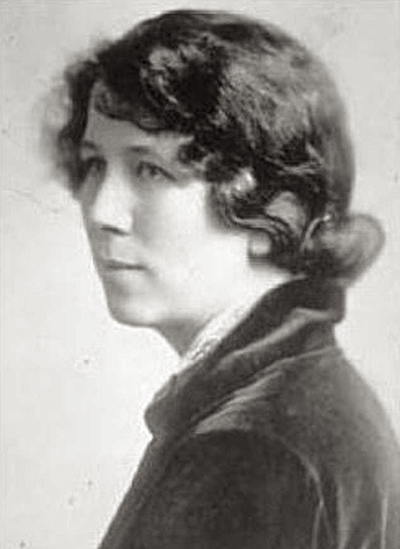
Fola La Follette
Actress, suffragist, labor activist, author.
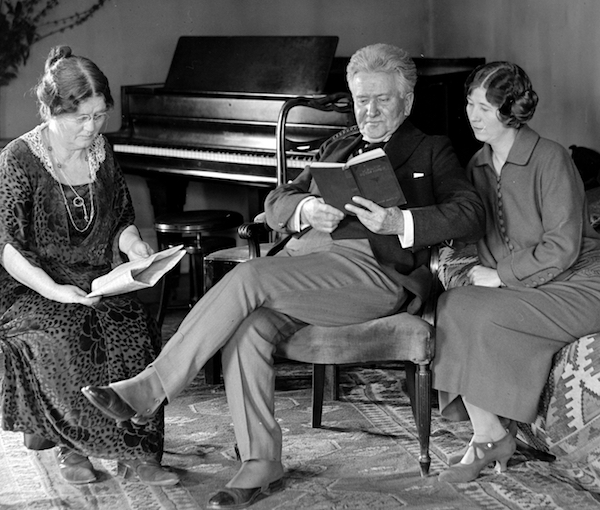
Above: Fola (right) with her father, Robert M. La Follette (center) and mother, women's suffrage leader, Belle Case La Follette (left) in 1924.
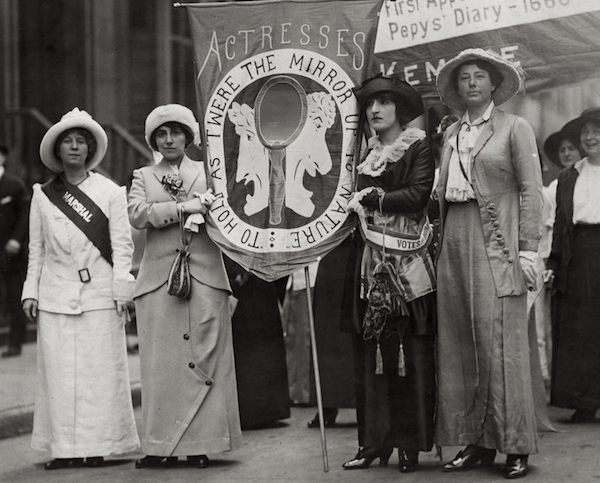
Above: Actresses Fola la Follette (left), Virginia Kline, Madame Youska and Eleanor Lawson attend a Women's Suffrage Movement parade to campaign for votes for women.
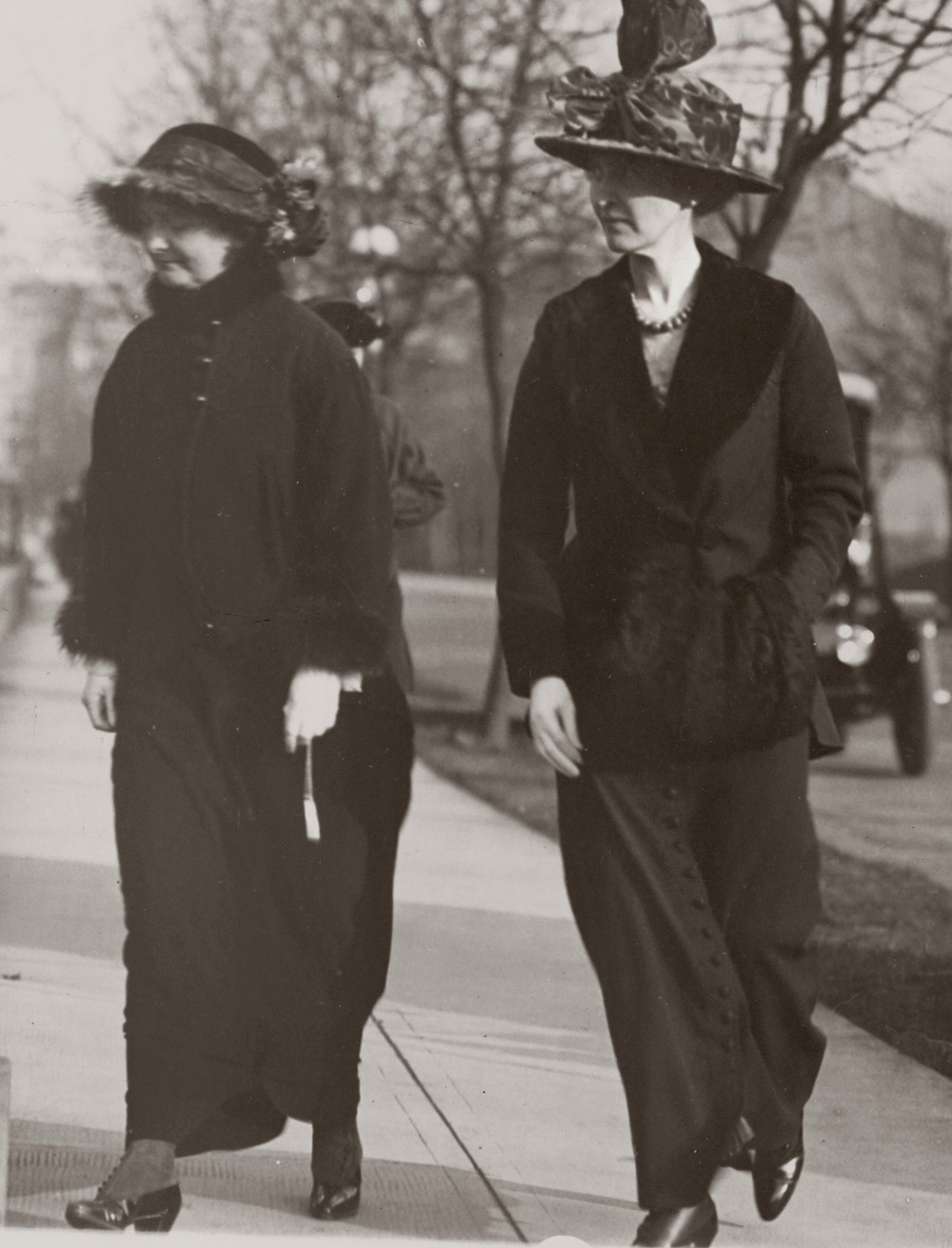
Above: Fola la Follette (right foreground), with two unidentified women, going to the annual meeting for The Congressional Union for Woman Suffrage on Jan. 11, 1914. Her mother was also a member.